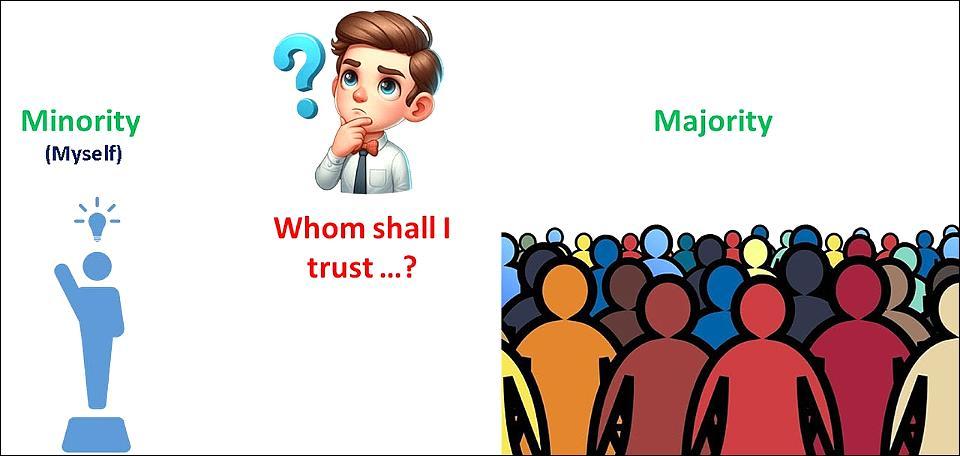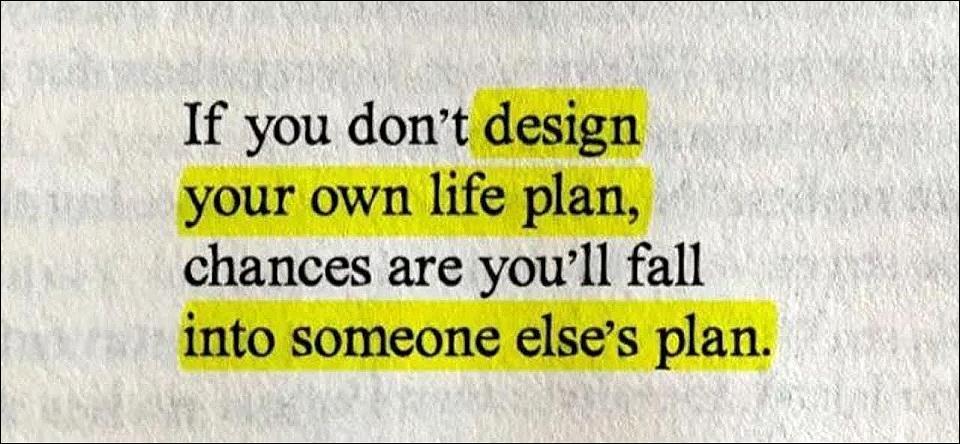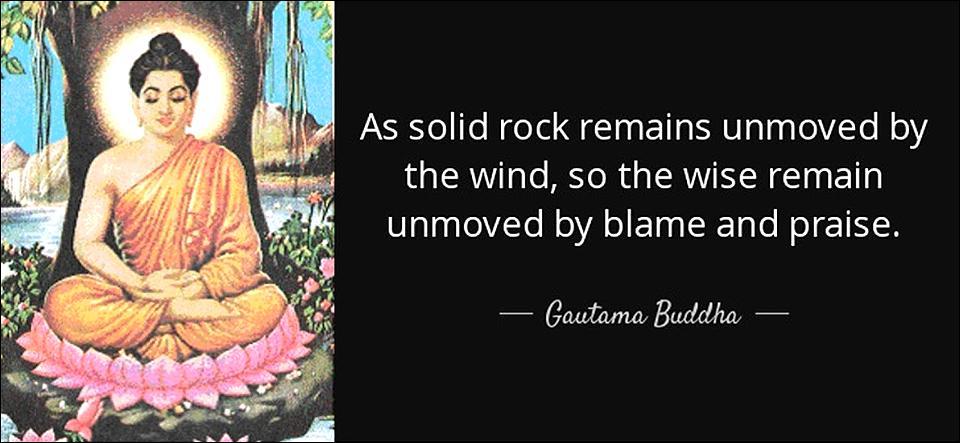(Video 53a), (Video 53b) Sometimes we do things just because we can (no matter how small or big they are). Should they not be judged …? Is it just a distraction from something …? Is that activity really harmless …? I don’t know if the decision to build pyramids was right. It must have been difficult, but does that make it right …? Just because something (a sport, art, technical skill set, ….) is hard or difficult to achieve, does that make it worthy …? Do we admire ‘Pyramids’ just as we admire ‘Gandhi’ (having no clue why he did what he did) …? Also, can we call something like this ‘work’ …? What set of actions define work …? Is it the expenditure of a certain amount of calories in a random direction …?
Someone else’s irrationality (and satisfaction of the Ego) becomes our work (building pyramids, being a lawyer, fashion industry (slightly useful but mostly meaningless), ……). And for what (& who) are we working for …? (Video 55) Is there any point in becoming strong and confident in a completely wrong direction …? Or is it just a waste of resources …? (we may accidentally learn something from it, but that was not the true intention).
(Video 11) – Anything can be made more valuable/ worthy/ desirable by suppressing it or by making it more difficult/expensive, but it’s true value never changes (like showing middle finger had no intrinsic value unless it was restricted, or to buy something, to travel somewhere, excessive sexual desires, earning a living, traditions, expensive celebrations, a sports car, genital organs, human female breasts (Video 211) – What is revolution for one is daily normal life for another)), precious gemstones (Video 280), ….).
We are given things to achieve (material, non-material, position and power in society, expensive celebrations, getting married (and not staying single), to become a famous sportsperson or artist, ….. ) through conditioning. Then we are made to feel weak by making them difficult to achieve. There are many things that exist in the world, but we feel weak for not having/ doing only those things that are admired by others. We don’t feel inferior or weak for not having/ doing things that are not desired by others (In general, hardly anyone regrets ‘not being a social reformer’.)
1. A person from the Sentinelese tribe (the most isolated tribe on North sentinel island), doesn’t feel weak for not having our clothes, but a beggar from mainstream society might feel so. It is only when a tribal person is truly convinced that “having certain clothes is being ‘Normal’”, that he can be made to feel weak for not having such clothes, not otherwise. And once he feels weak, his actions will unconsciously make attempts to shred off that feeling of weakness. Now, is he working for clothes or the feeling of inferiority …? ((Video 284) – A hole in confidence).

(That doesn’t mean we should dress like them. But we shall be aware of why we do what we do. Equally applicable for position in a group or society (Video 221), (Video 236))
2. A man/woman in India might feel weak (or slightly bothered, even if others don’t point it out) for not being married. But he/she wouldn’t feel so if they choose to stay unmarried in South Korea (where 34% of men are single). Most people are afraid of losing their value after a certain age and the family is the only tool for them to derive that value. We need something common to bond over with people and if we don’t have that, we become afraid of being left out of others’ minds. Similar is the case with having babies. Also, we like babies because they are weak. They need us and we like being needed (mostly because it gives us their undivided attention). It also gives us a false sense of goal (Video 331) and it makes us feel important (Video 328). (Try not doing these things and you will find out why you are doing what you are doing) – We always choose the path of least resistance unconsciously.
3. Let’s say someone close to us is in ill-health. If the treatment for that illness exists in the world but is expensive, then we might feel weakness or guilt for not being able to afford it. But if the treatment for that illness doesn’t exist, then the situation may not bother us equally.


So, how shall one find out whether something is right or wrong or valuable, irrespective of how it is being presented to us ..? (Video 236).
[ Taking into account the Normal Distribution (ND) & Biodiversity, it appears that polygamy (custom of having more than one partner in marriage. It is legal and practiced on a large scale in many Islamic countries.) may suit some people. Some may stay in monogamy. Some might choose to remain single at all. And others may stay married for a while and then go their separate ways after some time. No one thing is right in absolute (equally applicable to following a religion, tradition, being good at making conversations, education system, unnecessary & meaningless social responsibilities, (so-called) work, ….).

But monogamy forms a major part of the Normal Distribution and we are wired to draw a sense of righteousness from the majority. Hence, anything that is not majority appears wrong or weird or evil without any effort (Video 145) (Majoritarianism : the idea that the numerical majority of a population should have the final say in determining the outcome of a decision). And when we don’t know what there is to life, we end up following the world blindly and it causes suffering (Video 113b) ]
Is this one of the reasons we do what we do …? The value of things is directly proportional to ‘how deeply other people are interested in it’. The very reason luxury/beauty appears luxurious is because it is silently desired by others, else it wouldn’t appear so valuable (Video 168a), (Video 184). No wonder our economy is a disaster. How sure are we that we are smart …?
Sometimes by just possessing the ability to have something, we lose the desire for that thing, without actually having it (Video 72b), (Video 72a). Did we ever really want that thing or were we just trying to get rid of the feeling of weakness …? Not being able to have something makes us feel slightly weak and hence the moment we become capable enough, we realize that we were never interested in the actual thing (eg. King Ashoka renounced everything to adopt Buddhism after the war of Kalinga in 216 BC. Ashoka’s grandfather, Chandragupta Maurya, had previously attempted to conquer Kalinga but failed, motivating Ashoka to succeed where his predecessor had failed. Hundreds of thousands of people were killed. But why did Ashoka not embrace Buddhism before the war …? It would have been more helpful. Maybe, not being able to own a certain territory made it more desirable than it actually was. His inferiority made him fight the war). Anything can be more desirable than it actually is, by just making it unnecessarily difficult to access or achieve (either war or owning a business or (Video 311)). Just because something has been made difficult, does that make it worthy of doing …? Becoming ‘Gandhi’ is also an adventure. But we don’t like adventures like these in general (our actions don’t seem aligned with it). What’s the difference …?
What is it that we really want …? Is it power (or the feeling associated with it) or a false sense of goal or a distraction for mind or a sense of control over the situation around us or attention …? (Earning a living (/ making money) has been made more difficult than it actually is and hence it appears falsely worthy. The moment it becomes a little easier, our abnormal excessive desire for it will fall apart. Most people just don’t get to see that alternate reality).
(Video 47) Just because something comes from the place of power, does that make it right …? ((Video 42) what/whom we admire is the place of power for us and hence it changes from person to person but the psychological frame-structure remains the same. It can be a person, his wealth, a profession, an idol, art, religion, sport, tradition, certain skill-set/ information, .…). Another concurrent thought says ‘If everyone admires pyramids/ Taj Mahal (or anything for that matter), then there must be something to it’.

Where did that power (intensity of amusement and admiration) in that thing come from anyway …? Is it blindly following others …? Is it the other’s lack of personal sense of right and wrong …? (Video 23). Does the thing itself have any intrinsic value …? Are pyramids different from precious gemstones or ‘Gordian Knot’ …? (Video 32).

I might do the same things or cherish them, but for what reason …? or maybe I won’t. Is this how we admire things (forex market, cultures, certain way of doing something, desire for travel to a specific place, desire to possess something, celebrations, …) around us …? (again: we are bestowed with the ability to make something out of nothing, Hitler was just one of them. And anything can be made right by turning it into a common experience, no matter how absurd it is (Video 8), (Video 236)).

( Loss of admiration for something = Drop in monetary value )
How sure are we that our admiration of Pyramids, Taj Mahal, a specific religion, tradition, material/non-material things, music, trend, interior design of a house, …. is really ours and not just the impact of the world outside …? Can we guarantee it will never go aways …? (Video 197), (Video 204).
[ Just because we worked hard for something, doesn’t necessarily mean it’s the right thing to do, not wrong either. We shall not let the efforts spent on achievement of something dictate our decision making process. Our hard work has nothing to do with whether the actual thing is right or wrong. It must be studied independently. ]
Even if there are some secrets to pyramids, but if they don’t have the ability to solve our conflicts (which clearly they haven’t. Our current life is the proof of that and there is no meaning in having foolish hopes), then anyway their presence is meaningless. How different are the secrets of pyramids from an ‘Appendix’ (a human vestigial human body organ) …? We just want a false sense of hope, goals and distractions through things like these, so as to avoid the real problem (i.e. ourselves).
Also, (Video 35), if we are wrong, how can our admiration of pyramids/ Taj Mahal (or our definition of respect/ celebration/ ‘right & wrong’ or anything for that matter) be right …?
We spend most of our lifetime in visible and subtle reactions, we just falsely treat them as our actions. Did we come to this world to act or to react …? No matter how hidden/ difficult something is, if we don’t need/ want anything (especially satisfaction of ego or distraction), there is no reason for us to look into it at all.
If we are not trained how to feel a certain thing/ situation (either through video/audio content, through other’s description/experience, books, mere observation others or any other indirect method), then we wouldn’t know how to experience (or to feel) it (unless it is a pre-programmed biological desire, which doesn’t need experiences). Experiences (or feelings/ emotions associated with something) are inside us and not in the things outside. If it had been in the things outside, then everyone would feel the same about it irrespective of religion, region, country, timeline, surrounding one lives in …. . It is impossible to experience (or feel) something without having prior knowledge or prejudice of it. (We don’t even know what race is unless we learn about it through passive observation – (Video 80)).
(Take a pause …..)
Are we being encouraged (indirectly) to follow a completely different direction, because someone appreciated us for it and lost our original goal (maybe we didn’t have any goal at all so we got drifted).

Let’s say I cooked a nice meal one day and everyone appreciated the taste. (Or I observed someone being appreciated for being a good cook). Next day I decided to work on a few more recipes and also started daydreaming about opening a restaurant without actually noticing how I got encouraged to do so. I didn’t sit and think whether the activity was right or wrong or worthy of spending time on, independent of what other people had to present me with (actively or passively). Because one day you might start a restaurant and be very good at it (not guaranteed), but still you might find yourself grasped by emptiness like the entire thing was just a hologram.
Let’s say I made a good amount of money in that restaurant business. And I am using that money to buy a glass vessel because it looks nice. Even the desire to buy that glass vessel is just the reaction to the similar vessel I have seen someplace else. Why else would the desire arise …?.
My sense of right and wrong was not used while deciding why to start a restaurant (except for elevated needs) and neither was it used while having desire (not even buying) for a glass vessel. What is the point of me then …? Was I being a puppet during all that time (even if it is for years) …? Our entire life is a hoax. We were and are still being led to do one thing after another, we just don’t see it (no matter how small or big that action is).

When we make decisions based on feeling good-right-logical-superior-attention, it always results in chaos (individually and socially), mostly because they were mere reactions to the world outside. Only those decisions that are dictated by the world outside cause direction-lessness, not the true actions.
Encouragement of an activity, behavior/ ritual/ tradition/ attitude/ material thing, … happen in two ways. The first one is appreciation (direct or indirect) for that thing from the people (especially if we admire them). Second, what random coincidences presented us with. When all those things (people or things/ desires/ motivations) are gone (or become irrelevant with time), lack of actual reasoning in oneself causes doubts and emptiness at a later stage.
World keeps steering us like a shepherd, but we get encouraged only in the direction of ‘Satisfaction of the ego and superiority. (Again : we can’t be fooled unless we are one. Thieves don’t steal from empty houses).
We may not always know the origin of all of our actions (or thoughts/ opinions or reactions), but we do know that they are not ours. And the same goes for others.
( Take a pause …. )

Especially if it is a (so-called) ‘Good’ opinion coming from someone we admire. It satisfies our ego and hence we fail to look at it the way it is (people or an institution may offer us appreciation to establish their superiority or maybe they want to keep their presence alive in our mind (and the same goes for us). They just don’t realize the subtle/ hidden intentions of their psyche. When we stop ourselves from giving appreciation to someone, is when we get to see our true intentions (i.e. to establish our presence in others mind). Maybe we are afraid of being left alone. But what makes us think we are smart enough to give someone else validation …?. What is our credibility …? Lying to ourselves always causes suffering (Video 113)).
Validation may come from a person through verbal appreciation or in the form of excitement after clearing a certain level in a video game or a test/exam, running a business, award/ medal/ fan following, advancement in a certain sport/job/profession/art, being able to fit in the societal structure or certain lifestyle, ….. which unknowingly conveys to us that ‘I am good’, only because I lived up to certain expectations of the irrational people or the system people have created (eg. all sports are made-up and not everyone will fit into it equally well). Some of those things satisfy our needs as well and hence further strengthens the false system. We may do those things out of temporary necessity, but we shall not take the opinions/ sentiments coming from that place or not be obsessed with them (at the same time, not to run away from them either) (Video 106).
What is the credibility of such people or the system anyway …? Are they blind or awake …? (including self & people close to us).
If we don’t feel ‘good’ when we live up to others’ way of living, we don’t feel ‘inferior’ as well when we don’t follow their standards. When we don’t allow the world outside to make us ‘happy’, we unknowingly restrict it from making us feel ‘miserable’. These things go hand-in-hand.

Leave a Reply